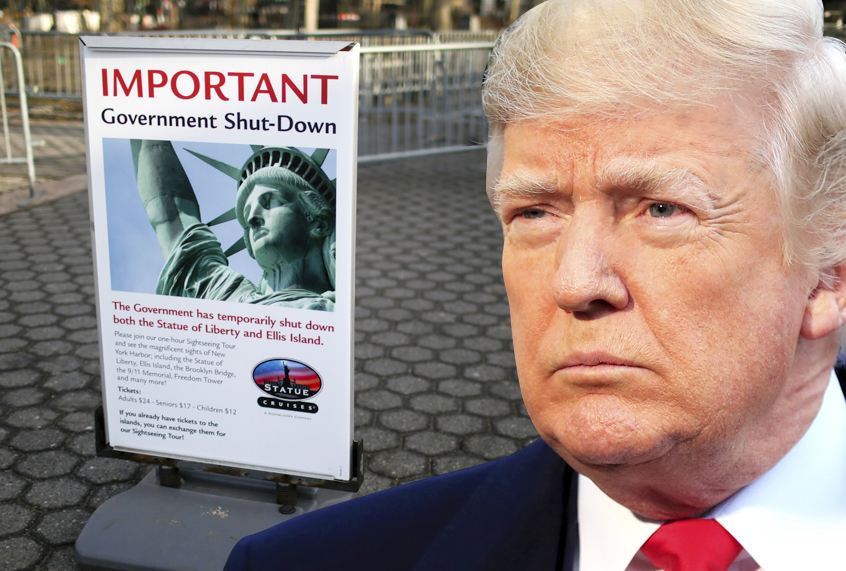One of the biggest myths about government shutdowns is that presidents usually win.
This may explain why President Donald Trump threatened to continue the shutdown for months, even years. However, a poll conducted in the first week of January shows that 51 percent of adults believe Trump is to blame for the shutdown.
I’m a scholar of political science and often research presidential politics. I did an analysis of Gallup data, a group that does public opinion polling, from its Presidential Job Approval Center.
There have been 18 shutdowns since 1977. I found that in the nine longest shutdowns during that time, presidents lose an average of 3 percentage points of public support or approval during a government shutdown of four or more days.
Most presidents lose shutdowns
In only two of the nine cases that I looked at did a chief executive boost his numbers. Jimmy Carter inched up a percentage point or two in 1977 and 1978 during the government shutdowns that took place during his presidency.
In the seven other cases, the shutdown led to declines in public approval of the president. And in the majority of cases, the president’s party lost the next presidential election.
The clearest example is President George H. W. Bush. In 1990, this GOP president was riding a 66 percent approval rating after the successful Operation Desert Shield (when we sent U.S. troops to Saudi Arabia to deter an attack by Iraq) and a long period of economic growth.
But Bush and the Democratic-controlled Congress battled over the budget deficit, triggering a government shutdown from Oct. 5 to 9. Public approval for Bush fell 10 percentage points.
Some of this may have been the result of Bush approving tax increases to close the budget deficit, which broke one of his campaign pledges of “no new taxes.”
But images of closed federal facilities didn’t help, giving voters the appearance of Bush presiding over gridlock. This hurt him in the 1992 election, when voters agreed with Democrats that Bush’s policies led to legislative deadlock.
Pundits often cite the case of Democratic President Bill Clinton as an exception. They claim he “won” the longest shutdown in U.S. history. This shutdown took place from Dec. 5, 1995 to Jan. 6, 1996, or 21 full days.
GOP House Speaker Newt Gingrich wanted to reduce the budget deficit, while Clinton opposed deep cuts in Social Security and Medicare.
It’s true that Clinton went on to defeat GOP Sen. Robert Dole — one of his rivals during the shutdown — in the 1996 election. But Gallup polling shows that Clinton’s approval ratings from mid-November to early January had fallen 11 percentage points to 42 percent.
In other circumstances, this could have cost Clinton another term. But in this case, he faced no opposition in his Democratic primary, while Dole lost precious time and money battling several rivals for the 1996 GOP nomination. I believe Clinton won in spite of the shutdown, not because of it.
Why presidents lose
People see the president as the most powerful actor in government.
“Presidents have more authority than anyone else in the United States government, and control more money and military forces than any other person in the world,” write Hoover Institution scholars Paul T. Hill and Ashley E. Jochim in their book “The Power of Persuasion.”
Hill and Jochim note that despite all of that power, presidents much work with Congress to get tasks accomplished. Because of their perceived power, presidents are often expected to accomplish more than their constitutional authority allows them to get done, notes Richard Neustadt in his book “Presidential Power.”
When the government is closed, history shows the president will be held accountable.
John A. Tures, Professor of Political Science, Lagrange College
This article is republished from The Conversation under a Creative Commons license.

